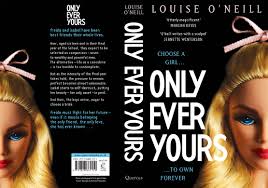My son dropped out of college last May. He'd failed his Christmas exams and was pretending to go to lectures for months. Every day he'd get up, shower and leave the house. Every late afternoon he'd come back and I'd ask him how his day went.
'Fine,' he'd say. But I knew something was up. He wasn't himself. He was quiet, withdrawn and didn't want to engage with the family. He just wanted to be left alone.
His summer exams crept nearer and nearer. I went into his room one evening and sat on the side of his bed.
'How's the study going?' I asked him.
'Fine,' he said. But he couldn't meet my eye.
I told him I was sitting there until he talked to me, even if it took all night. He knows how stubborn and determined I can be (I'm a writer after all, you don't get a novel finished without being both, plus a little bit insane, but that's a blog for another day) so he started to open up. He admitted that he hadn't been going to college for months. He told me how much he hated his lectures, how he felt so small, so insignificant. That the classes were so big (nearly 500 in his English lectures) that he hadn't made many friends, that he'd made a mistake, it wasn't the right course for him and he didn't know what to do about it. That he felt he'd let me down.
I was so upset for him that I started to cry. He was pretty close to it himself. I told him I loved him no matter what. That I didn't give two hoots about him failing his exams, I just wanted him to enjoy college, to make friends, and yes, maybe to learn something useful, but most of all to be happy. I told him that I was proud of him for telling me the truth, even if it had taken him a while.
There's nothing my son could do that would make me any less proud of him. He's a wonderfully funny, thoughtful, smart young man. Yes, sometimes he drives me crazy and you should see the state of him room, but right now he's down at the sailing club teaching young children how to sail.
In the end we sorted things out - he re-applied to a different college - a much smaller college to do a different kind of degree. He is now in first year again and has already made loads of new friends.
So why am I telling you all this?
Life isn't always easy. Sometimes we hold things inside, we don't tell the people closest to us - our family, our friends - how we really feel. We keep plodding on, hoping things will get better. But sometimes they don't and we need help.
If things are getting on top of you please be brave - reach out and tell someone. As the old BT ad used to say, 'It's good to talk'.
Sarah XXX
This post first appeared on www.girlsheartbooks.com











